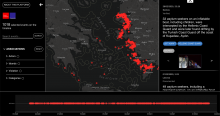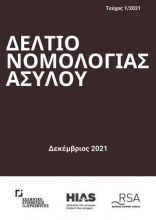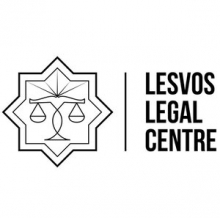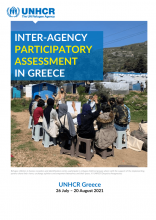Αναφορά

Τhe report examines the workings of border procedures implemented on the Greek islands over the past year (June 2021 – June 2022), revealing new concerns tied to poor quality of asylum procedures and to breaches of fundamental rights.



Legal ways of accessing the Greek territory are not provided for persons in need of international protection, nor does Greece issue visas for humanitarian reasons.


UNHCR, the UN Refugee Agency, together with sister UN agencies, NGO partners, municipalities and authorities discussed with refugees and asylum-seekers across Greece to identify their main concerns and key recommendations around protection and integration. A regular part of UNHCR’s programming, the Participatory Assessment (PA) provides an opportunity for UNHCR and others to assess the existing humanitarian programmes and adjust future initiatives in line with refugees’ feedback.

From a legal standpoint, this report examines and contributes to the discussion surrounding the prevalence and consequences of procedural violations during asylum interviews and in the assessment of SOGIESC claims in Europe,7 with a focus on process rather than outcome. Insights from our MHPSS team provide a complementary frame of reference, drawing attention to the detrimental impacts that flawed and unlawful procedures have on the wellbeing and mental health of people seeking international protection.
